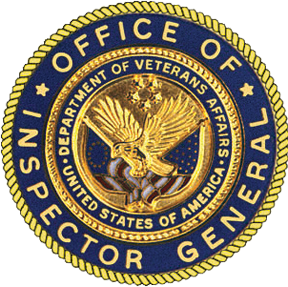Transition to VA Health Care and Utilization of Benefits for Veterans Who Reported Sexual Assault During Military Service
Report Information
Summary
The VA Office of Inspector General (OIG) conducted a review of VA health care and benefits utilization by veterans who reported sexual assault to the Department of Defense Sexual Assault Prevention and Response Office (SAPRO) during military service or who later disclosed having experienced military sexual trauma (MST) to a VHA provider.
The OIG found that veterans who reported sexual assault to SAPRO were more likely to be female, younger, and fall within the lowest pay grades at the time of discharge when compared with veterans who did not report sexual assault during military service. Veterans who reported to SAPRO were more likely to apply, and applied sooner after discharge, for VA health care, education, and readiness program and employment benefits.
Among VHA patients who did not report sexual assault to SAPRO, seven percent disclosed MST at VHA. VHA patients who reported sexual assault or MST were more likely to use and used VA health care more frequently, especially mental health care, compared with VHA patients who did not report. VHA patients who reported sexual assault or MST were more likely to be diagnosed with mental health disorders, particularly posttraumatic stress disorder and major depressive disorder. Veterans who reported to SAPRO were also more likely to use Vet Center counseling services than those who did not report.
Veterans who reported sexual assault to SAPRO were more likely to have received a service-connected disability rating, have a higher service-connected disability rating, and have a mental health disorder component contributing to their service-connected disability rating than veterans who did not report to SAPRO.
The OIG made one recommendation to the Under Secretary for Health regarding outreach and two recommendations to the Under Secretary for Benefits to evaluate the application and claims process and outreach for veterans who reported sexual assault during military service.
The Under Secretary for Health examines potential differences between the veterans who reported to Sexual Assault Prevention and Response Office and used VA health care and those who did not in order to improve outreach efforts to the nearly half who did not engage with VA health care.
The Under Secretary for Benefits evaluates the service-connected disability application and claims process for veterans who reported sexual assault that occurred during military service to identify and mitigate potential barriers.
The Under Secretary for Benefits examines potential differences between the veterans who reported to Sexual Assault Prevention and Response Office and used VA benefits and those who did not in order to improve outreach efforts.
